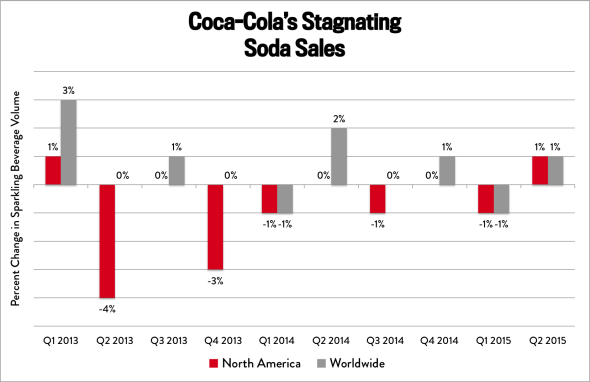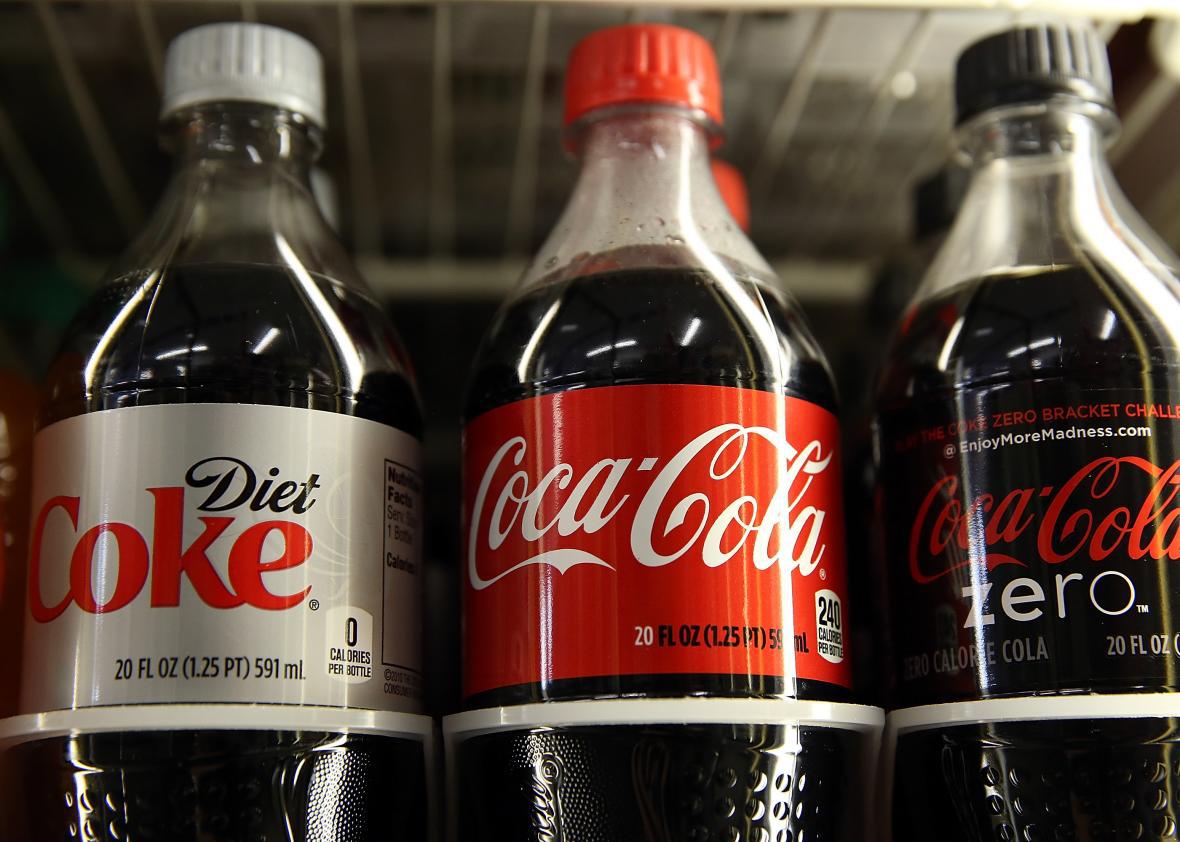Coca-Cola has poured massive sums of money into getting America to share a Coke. But that leaves a bigger struggle: getting the nation to drink a Coke. Despite the company’s best efforts, sales of carbonated beverages—and in particular its flagship sodas—are weak. The latest? At the end of July, Coca-Cola reported that the volume of Coke sold worldwide in the second quarter of 2015 increased a mere 1 percent—and given the brand’s recent numbers, that qualified as good news. Diet Coke volume tumbled 7 percent. Results were similarly lackluster in the first quarter.

Data from Coca-Cola. Chart by Alison Griswold.
Why? Consumers have gotten a lot more health-conscious, so they’re fleeing both sugar-packed drinks and artificial sweeteners like aspartame. Consumer skepticism has officially replaced New York’s attempted big-drink ban as the biggest threat to the soda industry. So before it’s too late, Coca-Cola is trying to change the narrative. With the best science that money can buy.
Over the past several years, Coca-Cola has donated millions of dollars to the Global Energy Balance Network, a nonprofit that is attempting to redirect the conversation around America’s obesity crisis from calorie consumption to exercise habits, the New York Times reports. “It’s very clear that around the world the populations are getting fatter,” says Steve Blair, an exercise scientist affiliated with the group. “The big problem is we don’t really know the cause other than, well, too many people are eating more calories than they burn on too many days.”
Knowledge, of course, is power, and Blair would like to see more power handed to the American people. He thinks “we need to discover what is really causing this epidemic” and “how do we change it.” He says, “We want to educate the world better on energy balance, so that people have a better understanding of what it takes to maintain a desireable weight, and so forth.” He says, “We want data.” Not just any data. “Actual data.” (As my colleague Daniel Engber points out, there’s tons of evidence pinning blame for weight gain on sugary beverages.)
Who is we? Blair doesn’t specify, but that it includes “Coca-Cola” seems like a safe guess. According to the Times, the Global Energy Balance Network’s website “is registered to Coca-Cola headquarters in Atlanta, and the company is also listed as the site’s administrator. Blair, the Times notes, received more than $3.5 million in funding from Coke for research since 2008. There are a bunch of other donations that scream conflict of interest, but I won’t enumerate them here. Because this isn’t about Coca-Cola, or million-dollar donations, or the shady intersection of big business and scientific research. It’s about data—actual data. What could go wrong?
